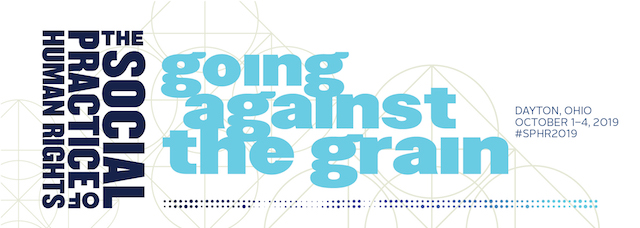Location
Resilience
Start Date
10-4-2019 10:30 AM
End Date
10-4-2019 12:00 PM
Keywords
Disability, mobility, health, urban planning, development
Abstract
Social issues such as resource allocation, distributive justice, and civic participation have been the hallmarks of human rights discourse. These issues are particularly salient to persons with disabilities, arguably one of the most excluded communities in the world despite representing over 15% of the global population. Inaccessibly built environments are one the key barriers for persons with disabilities because they prohibit full access to spaces and services that promote social inclusion. Additionally, persons with disabilities have drawn limited attention from the realms of urban planning and development. As a result, the importance of disability rights must be viewed as a crucial component of human rights.
To expand this conversation, we explored mobility for persons with disabilities in Birmingham, Alabama and will utilize similar methodologies within Lima, Peru. Results from four economically-diverse communities in Birmingham indicate that these residents experience environmental barriers to walkability, do not have well-maintained sidewalks, cannot complete most of their personal shopping at local stores, and live in closer proximity to a fast food establishment than a supermarket. These findings suggest that inclusion of human rights ideals within urban planning and development have the ability to promote mobility and healthy behaviors. Furthermore, a similar study will be implemented in Lima to understand how built environments impact the inclusion of persons with disabilities in a cross-cultural context.
Author/Speaker Biographical Statement(s)
Shane D. Burns is a Doctoral Student in the University of Alabama at Birmingham Department of Sociology. Shane has a BS in Health Sciences from Oakland University, an MPH in Society, Behavior, & Development from Tulane University, and an MA in Sociology from The University of Alabama at Birmingham. Shane’s research interests include: stigma toward marginalized populations, medicalization of disabilities, neighborhood walkability, and immigrants with disabilities. Shane’s Institute for Human Rights profile can be found here: https://www.uab.edu/cas/humanrights/about/ staff/graduate-assistants.
From Birmingham to Lima: Expanding Mobility for Persons with Disabilities
Resilience
Social issues such as resource allocation, distributive justice, and civic participation have been the hallmarks of human rights discourse. These issues are particularly salient to persons with disabilities, arguably one of the most excluded communities in the world despite representing over 15% of the global population. Inaccessibly built environments are one the key barriers for persons with disabilities because they prohibit full access to spaces and services that promote social inclusion. Additionally, persons with disabilities have drawn limited attention from the realms of urban planning and development. As a result, the importance of disability rights must be viewed as a crucial component of human rights.
To expand this conversation, we explored mobility for persons with disabilities in Birmingham, Alabama and will utilize similar methodologies within Lima, Peru. Results from four economically-diverse communities in Birmingham indicate that these residents experience environmental barriers to walkability, do not have well-maintained sidewalks, cannot complete most of their personal shopping at local stores, and live in closer proximity to a fast food establishment than a supermarket. These findings suggest that inclusion of human rights ideals within urban planning and development have the ability to promote mobility and healthy behaviors. Furthermore, a similar study will be implemented in Lima to understand how built environments impact the inclusion of persons with disabilities in a cross-cultural context.



